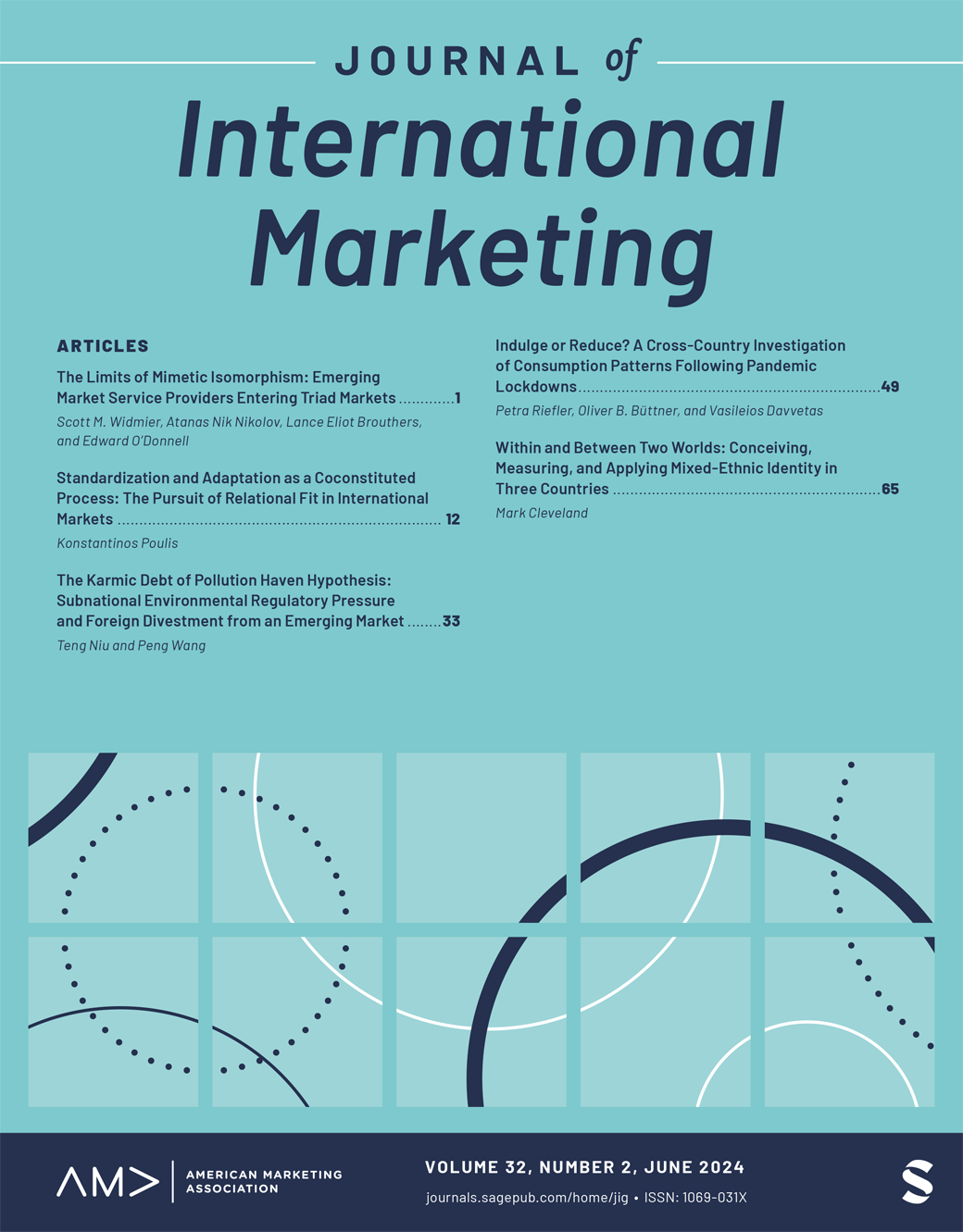我们并不都一样:个人文化取向对弱势消费者财务幸福的影响
IF 4.9
2区 管理学
Q1 BUSINESS
引用次数: 3
摘要
解决世界范围内的脆弱性是许多组织(如非政府组织、非营利服务提供商、政策制定者)和学者的目标,但弱势消费者有时会拒绝可以改善其脆弱性的帮助,尤其是在提供与他们个人文化取向相冲突的服务时。本文利用在美国收集的二次数据和在美国和中国收集的一次数据,探讨了两种个人文化取向——自我中心主义(即个人层面的个人主义)和异地中心主义(如个人层面的集体主义)——如何影响一个人感知的财务脆弱性和行为。结果表明,自我中心主义(相对于异中心主义)通过其他个人文化取向(即长期取向、避免不确定性和男子气概)降低(相对于增加)感知到的财务脆弱性。最后,感知到的金融脆弱性会导致消费者的金融行为对财务状况产生负面影响。研究结果有助于从个人文化取向的角度加深对感知财务脆弱性的形成机制和后果的理解。此外,研究结果表明,个人文化取向可以通过自我中心主义/异中心主义来改变,因此可以作为国际营销研究的内生变量。本文章由计算机程序翻译,如有差异,请以英文原文为准。
We Are Not All the Same: The Influence of Personal Cultural Orientations on Vulnerable Consumers’ Financial Well-Being
Addressing vulnerability worldwide is the goal of many organizations (e.g., nongovernmental organizations, nonprofit service providers, policy makers) and scholars, yet vulnerable consumers sometimes reject help that could ameliorate their vulnerability, especially when offered services that conflict with their personal cultural orientations. This article utilizes secondary data collected in the United States and primary data collected in the United States and China to explore how two personal cultural orientations—idiocentrism (i.e., individualism at the individual level) and allocentrism (i.e., collectivism at the individual level)—influence one's perceived financial vulnerability and behavior. The results demonstrate that idiocentrism (vs. allocentrism) decreases (vs. increases) perceived financial vulnerability through other personal cultural orientations (i.e., long-term orientation, uncertainty avoidance, and masculinity). Finally, perceived financial vulnerability leads to consumers engaging in financial behaviors that negatively affect financial well-being. The results contribute to the literature by deepening understanding of the formulation mechanism and consequences of perceived financial vulnerability from the perspective of personal cultural orientations. In addition, the results indicate that personal cultural orientations can be changed by idiocentrism/allocentrism and thus can be treated as endogenous variables in international marketing research.
求助全文
通过发布文献求助,成功后即可免费获取论文全文。
去求助
来源期刊

Journal of International Marketing
BUSINESS-
CiteScore
8.70
自引率
17.20%
发文量
28
期刊介绍:
As the globalization of markets continues at a rapid pace, business practitioners and educators alike face the challenge of staying current with the developments. Marketing managers require a source of new information and insights on international business events. International marketing educators require a forum for disseminating their thoughts and research findings. Journal of International Marketing(JIM) is an international, peer-reviewed journal dedicated to advancing international marketing practice, research, and theory. Contributions addressing any aspect of international marketing management are published each quarter.
 求助内容:
求助内容: 应助结果提醒方式:
应助结果提醒方式:


